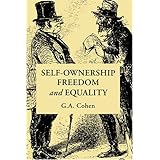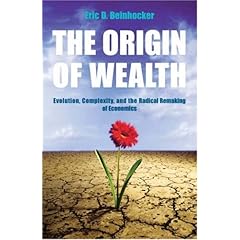Tuesday, July 08, 2008
Cohen Pt.1
Posted by Simon Halliday | Tuesday, July 08, 2008 | Category:
Cohen,
equality,
libertarianism,
Nozick,
Political Philosophy,
Rawls,
Roemer
|
 Yesterday I published the bibliography and some of the ideas for my research program over the next few months, and realistically as a basis for the next three years. I didn't give many details on account of it simply being a publication of what I am planning to do for the next while.
Yesterday I published the bibliography and some of the ideas for my research program over the next few months, and realistically as a basis for the next three years. I didn't give many details on account of it simply being a publication of what I am planning to do for the next while. Today I am going to start some of this with a discussion of the first few chapters of G.A. Cohen's (1995) Self-Ownership, Freedom and Equality which will involve a few posts over the next few days. Cohen's main intention in the book is to strip down and assess the concept of self ownership, to relocate the ideology of socialism without self-ownership as proposed by Marx and to argue that Nozick's argument for self-ownership as effective freedom are flawed and that he applies double standards in terms of the arguments Nozick makes in Anarchy, State and Utopia.

Cohen spends his first chapter discussing Nozick's Wilt Chamberlain example. He first proposes that a proper translation of Nozick's proposal that:
"Whatever rises from a just situation by just steps is itself just." (1)to:
Robert Nozick (1971, 161-2)
"Whatever arises from a just situation as a result of fully voluntary transactions on the part of all the transacting agents is itself just." (2)Leaving aside the discussion of slavery arguments that pertain to the above, Cohen voices discontent with Nozick's argument and declares he would be disturbed if,
G. A. Cohen (1995, 21)
"we can see what the agent thinks he is gaining, but we know that what he will gain is not that, but something he think less valuable; or that what results is not only the gain he expects but also unforeseen consequences which render negative the net value, according to his preferences and standards, of the transaction."Moreover, it is necessary for us to attempt to understand whether individuals would have made a decision if they understood the aggregate effects of their choice ex post. For which Cohen issues a re-translation of (1):
G. A. Cohen (1995, 23)
"Whatever arises from a just situation as a result of fully voluntary transactions which all transacting agents would still have agreed to if they had known what the results of so transacting were to be is itself just. " (3)
Cohen, (1995, 23)
With which, it is understandably difficult to argue, the capitalist economy may not be the best able to deal (or any system for that matter, but that is another debate entirely). For which it is also necessary for us to understand that, not only do the Chamberlain fans get to see Chamberlain, but, having paid him, the aggregate result is one that endows Chamberlain with powers over them through the amount of money to which he now has access. It is this effect that Cohen argues would be preferred to be prevented by those living in a socialist society. Cohen argues that a society in which this occurs would be "a society of equality in danger of losing its essential character" Cohen (1995, 26)
Notwithstanding whether one finds the above argument credible or not, Nozick proposes that third parties, not privy to concern about the transactions of others, remain entirely unaffected by the Wilt Chamberlain - Fans transaction. Cohen argues that this is untrue and I believe him. Third parties lose relative position and power without any form of recompense (the fans at least get to watch the game).
Then he proposes a further argument, which I think is more convincing and progresses as follows: could we conceive a world in which individuals paid some price to watch Wilt Chamberlain, but who knew, in addition, that their payment would be taxed and that Chamberlain would not gain disproportionate wealth and power as a consequence (an option that was supposedly not considered by Nozick)? If we assume normal economic rationality then Chamberlain will play if he sees that the wage he receives is adequate relative to the effort he puts in. Moreover, he could enjoy playing for its intrinsic worth to him, i.e. the joy of being a fantastic professional basketball player for which he gains everything from adulation to sheer exhilaration (I grant that such theorizing can lead to tautologies, but this does not mean that it is irrelevant - work selection endogeneity is still neglected in economics).
Then he proposes a further argument, which I think is more convincing and progresses as follows: could we conceive a world in which individuals paid some price to watch Wilt Chamberlain, but who knew, in addition, that their payment would be taxed and that Chamberlain would not gain disproportionate wealth and power as a consequence (an option that was supposedly not considered by Nozick)? If we assume normal economic rationality then Chamberlain will play if he sees that the wage he receives is adequate relative to the effort he puts in. Moreover, he could enjoy playing for its intrinsic worth to him, i.e. the joy of being a fantastic professional basketball player for which he gains everything from adulation to sheer exhilaration (I grant that such theorizing can lead to tautologies, but this does not mean that it is irrelevant - work selection endogeneity is still neglected in economics).

The criticism that follows this is one to do with the psychology of individuals living in the socialist state Cohen argues that "The people in Nozick's state of nature areintelligible only as well.socialized produc.ts of a market society." (1995, 29) He proposes that individuals in a socialist society would hold to different values such that "incessant vigilance against 'capitalistic acts'"(ibid.) would be unnecessary. Cohen asserts that there are different concepts of human nature inherent in Nozick than in socialism. The human nature that would be more prevalent in socialism would be more pro-social. This is, I believe, a flawed argument, for no other reason than the fact that biological and other evidence generally supports individuals being altruistic towards kin and in-groups, rather than all individuals [See, for example, Choi and Bowles (2007) on Parochial Altruism and War, or at the evidence discussed in Eric Beinhocker's The Origin of Wealth if I recall accurately]. So, I think this argument is weak.
In general, Cohen seems to produce a number of valid criticisms of Nozick in this, the content of the first chapter of his book. He also delineates additional arguments on side constraints and on the role of the proletarian in a capitalist society who has freedom, but is effectively unfree. I will probably refer to this topic at a later date when discussing Nozick's idea of self-ownership for individuals in a jointly-owned world and contrasting this with his argument for the freedom of the proletarian. Right now, back to reading.
Subscribe to:
Post Comments (Atom)




Currently have 0 comments:
Post a Comment